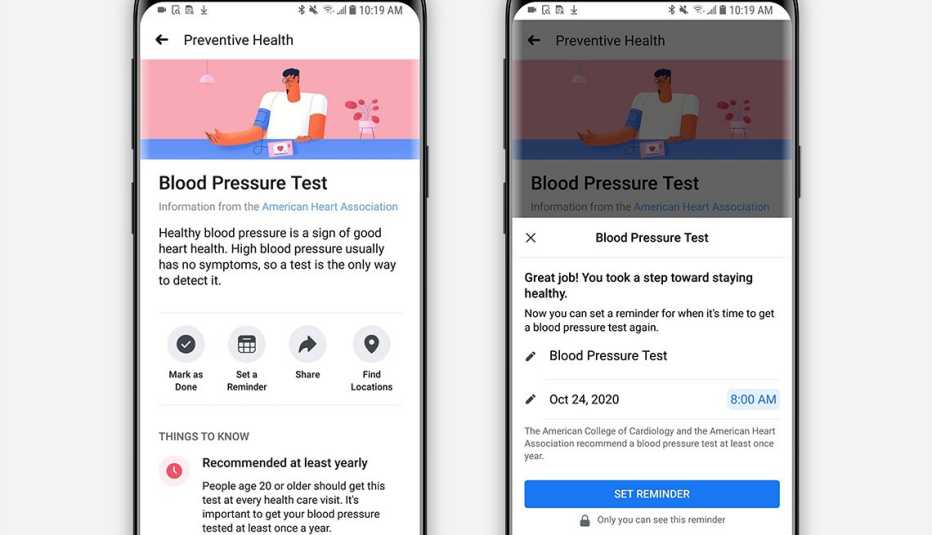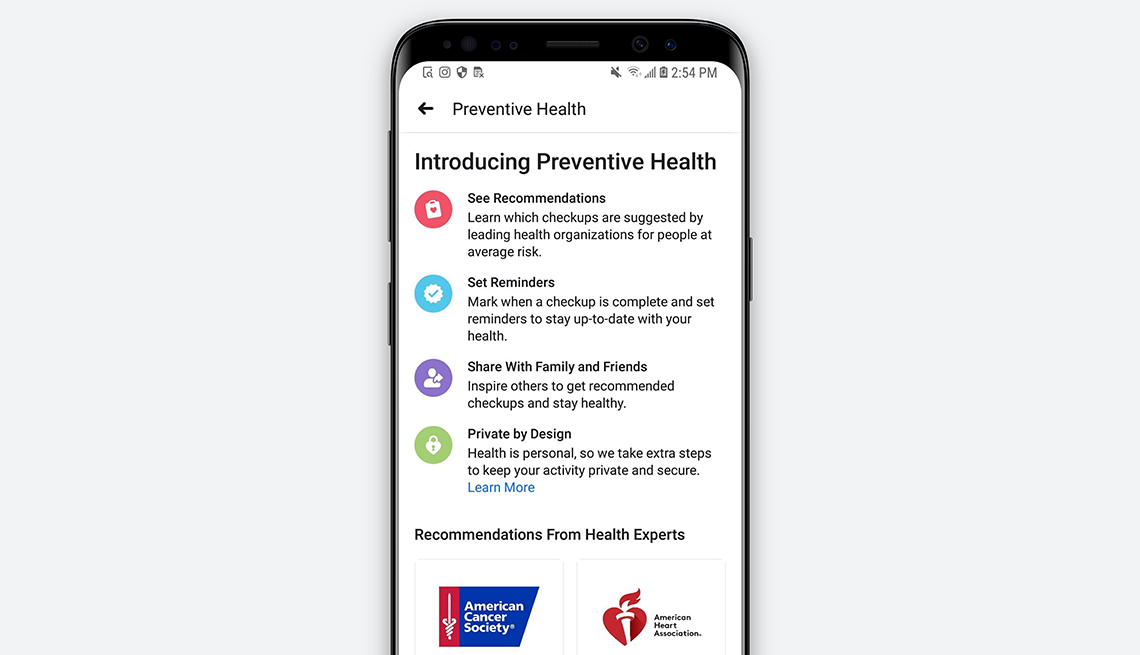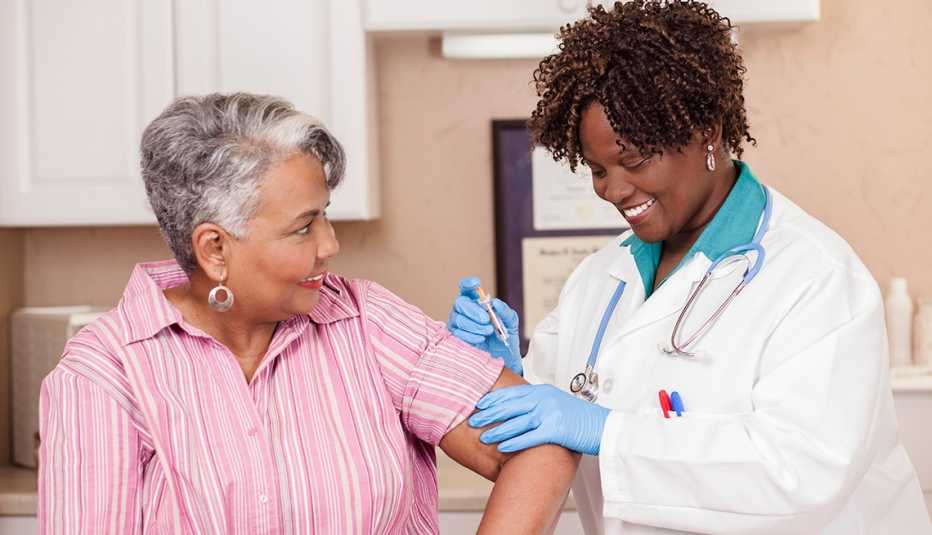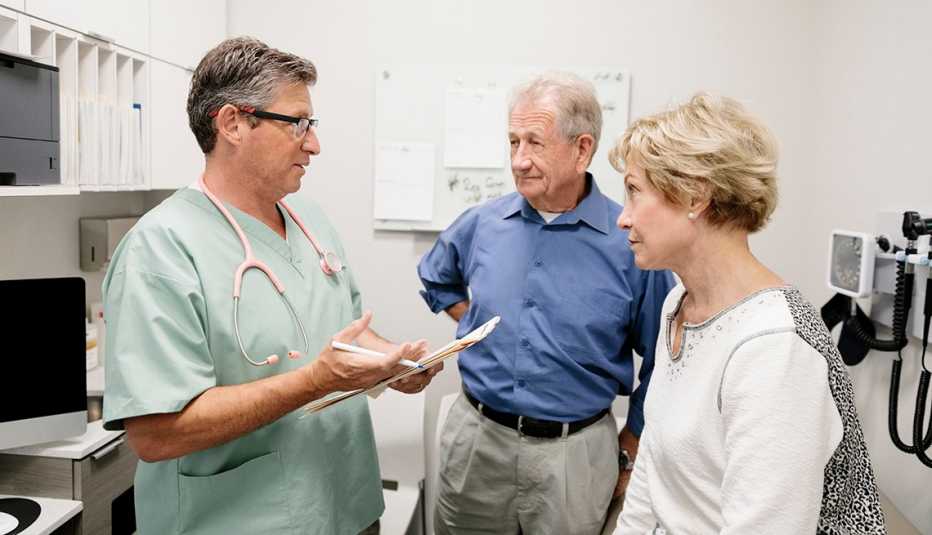AARP Hearing Center
If you’ve logged into Facebook recently, you may have noticed something new: In addition to notifying you every time a friend messages or comments on your photos, the social media platform can now alert you when it’s time to check your blood pressure or schedule a mammogram.
The new tool, called Preventive Health, was launched to help reach the millions of Americans who miss out on the kind of annual physicals and routine tests that help catch common conditions underlying the two leading causes of death in the U.S. — heart disease and cancer.
How it works
When a Facebook user pulls up Preventive Health (find it by typing “Preventive Health” in the search bar of the mobile app), the tool recommends tests, screenings and medical appointments tailored to the user’s age and gender. A 70-year-old man, for example, is prompted to get a blood pressure test and a stool blood test once a year; a 50-year-old woman is advised to have a mammogram. An annual flu shot and regular cholesterol test are recommended for both.


“If somebody checks Facebook in the morning and they’re scrolling through their usual news feed and seeing what’s going on, they might get a reminder about doing things to improve their health,” says Andrew Freeman, a Denver-based cardiologist with the American College of Cardiology, which worked with Facebook on the new tool.
With each health tip, the user has the option to set a reminder to schedule screening appointments or read more about what’s being recommended (all of the information is from leading public health organizations). If location services are turned on, the tool also connects users to nearby federally qualified health centers, where they can access affordable preventive care if they don’t have insurance.
The concept is simple, but it could be lifesaving, experts say. About half of cancer cases and deaths from cancer can be prevented through lifestyle modifications and early detection from screenings, says Richard Wender, chief cancer control officer at the American Cancer Society, which also worked with Facebook on the tool. Lack of access to affordable health care is one obstacle that prevents patients from getting the preventive services they need. Health education is another.




































































